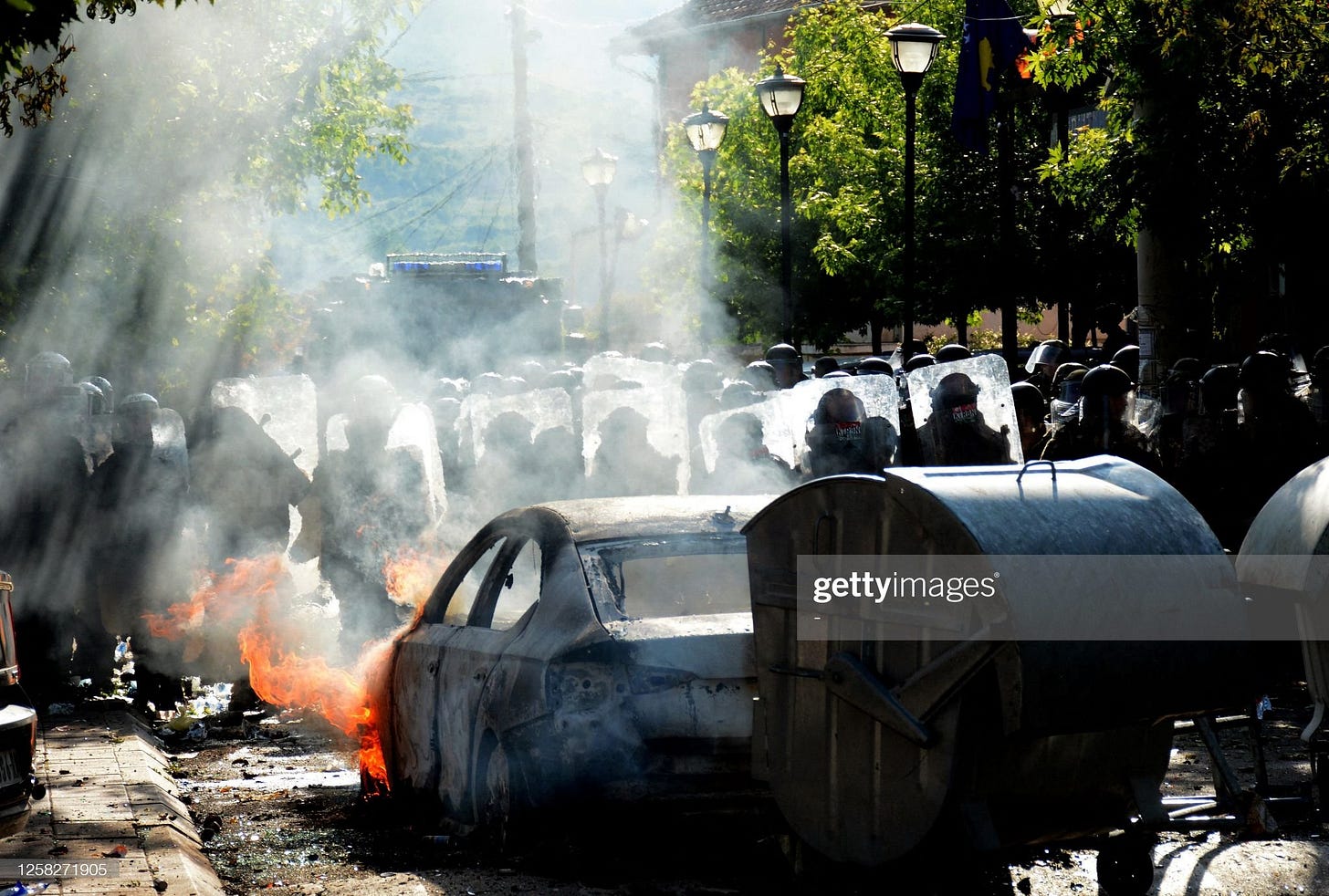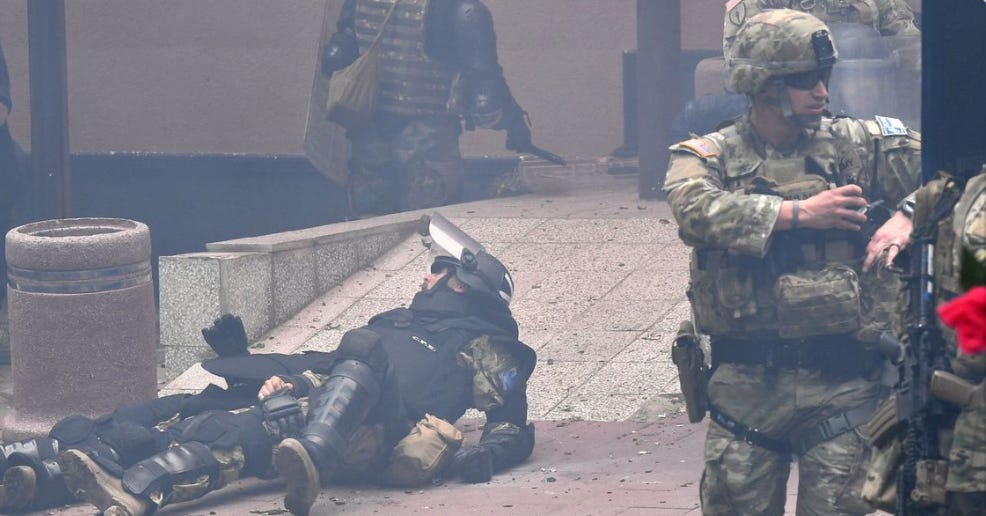EU and US Call for Kosovo's Special Police Units to Withdraw, While Russia and China Urge Restraint in Dealing with Belgrade-Backed Armed Separatists in the North
Amidst international pressure, the EU and US insist on Kosovo withdrawing its special police units, while Russia and China demands restraint in dealing with Belgrade armed separatists in the north.
Amidst the escalating tensions in Kosovo, the European Union and the United States have come forth to strongly condemn the violence that has engulfed the region. However, their statements have fallen short of identifying the root causes behind these acts of aggression, and instead, they demand the withdrawal of the Kosovar Special Police Unit Forces. In a display of solidarity with Western powers, Russia and China express their concerns, urging Kosovo to cease its resistance against Belgrade-backed armed factions masquerading as peaceful protestors. These armed separatists, championing the Serbian cause, vehemently oppose the newly elected Albanian mayors, demanding control over the municipalities. The clashes that have ensued between these factions and the KFOR soldiers, the NATO peacekeeping troops, have yielded a grim outcome, with at least 30 soldiers sustaining gunshot wounds. This unfortunate development serves as a poignant reminder of the deeply entrenched divisions that persist within Kosovo. Moreover, it underscores a disconcerting reality where democratic principles and values seem to have been relegated to mere abstractions, no longer considered sacrosanct. In the face of this multifaceted conundrum, the international community grapples with the arduous task of striking a delicate balance, striving to resolve the conflict and lay the groundwork for a sustainable and enduring peace.

In a tumultuous turn of events, Kosovo finds itself at the centre of a heated international debate, as conflicting forces clash over the issue of police operations in the northern municipalities of the country. The European Union, represented by its High Representative for Foreign Affairs and Security Policy, Josep Borrell, has emerged as a vocal critic of the violence witnessed in northern Kosovo in recent days.
"The EU strongly condemns the acts of violence towards citizens, media, law enforcement, and KFOR (Kosovo Force)," Borrell emphasized in a press conference held in Brussels. He reiterated the EU's unwavering support for NATO and KFOR, emphasizing their vital role in maintaining peace and stability in Kosovo.
While the EU takes a firm stance on the matter, Russia's Foreign Ministry advocates for decisive action to reduce tensions in Kosovo. Accusing the West of propagating false narratives, Russia emphasizes the plight of the Serbian population in Kosovo, characterizing them as peaceful, unarmed individuals struggling to defend their legitimate rights and freedoms. China, too, joins the fray by expressing solidarity with Serbia, endorsing the protection of its sovereignty and territorial integrity. The Chinese Communist Party's longstanding criticism of the NATO alliance further fuels the dispute, stemming in part from the 1999 bombing of the Chinese Embassy in Belgrade during the alliance's air campaign in Kosovo, which concluded the war.
The Chinese Foreign Ministry points the finger at the temporary self-governing institutions of Kosovo for their unilateral actions, insinuating that the Government of Kosovo bears responsibility for the escalation of tensions. As protests continue for a second consecutive day in Zvečan, Leposavić, and Zubin Potok, Serbian demonstrators vehemently oppose the newly elected Albanian mayors who assumed office on April 23rd. Despite the Serbs' boycott of the local elections and their efforts to hinder the functioning of the Albanian mayors, China insists that municipalities where the Serbian population is the majority should grant them control.
The protests have not been without consequences. On Monday, clashes between Serbian demonstrators and KFOR soldiers resulted in injuries to 30 peacekeepers, with three of them even sustaining gunshot wounds. In response, a medical team from Hungary was dispatched to Kosovo to provide the necessary care and facilitate the return of the injured Hungarian KFOR soldiers. Meanwhile, Mao Ning, a spokesperson for the Chinese Foreign Ministry, urged NATO to respect the sovereignty and territorial integrity of Kosovo, emphasizing the importance of actions that contribute to regional peace.
The deep-rooted divide in Kosovo is epitomized by the refusal of the area's majority Serbs to accept Kosovo's declaration of independence from Serbia in 2008, as they continue to regard Belgrade as their capital, more than two decades after the Kosovo Albanian uprising against Serbian oppression. Ethnic Albanians, constituting over 90% of the population in Kosovo, clash with the aspirations of the northern Serbs, who seek the implementation of the EU-brokered 2013 agreement for the establishment of an Association of Serb municipalities in their region.
Against this complex backdrop, the international community faces an intricate balancing act, striving to address the legitimate concerns of both the Serbian and Albanian populations in Kosovo. It is imperative for all stakeholders involved to recognize the nuances of the situation and find a diplomatic solution that respects the rights and aspirations of all communities in the region. As tensions continue to simmer, the world watches intently, hoping for a resolution that fosters lasting peace and stability in Kosovo.






